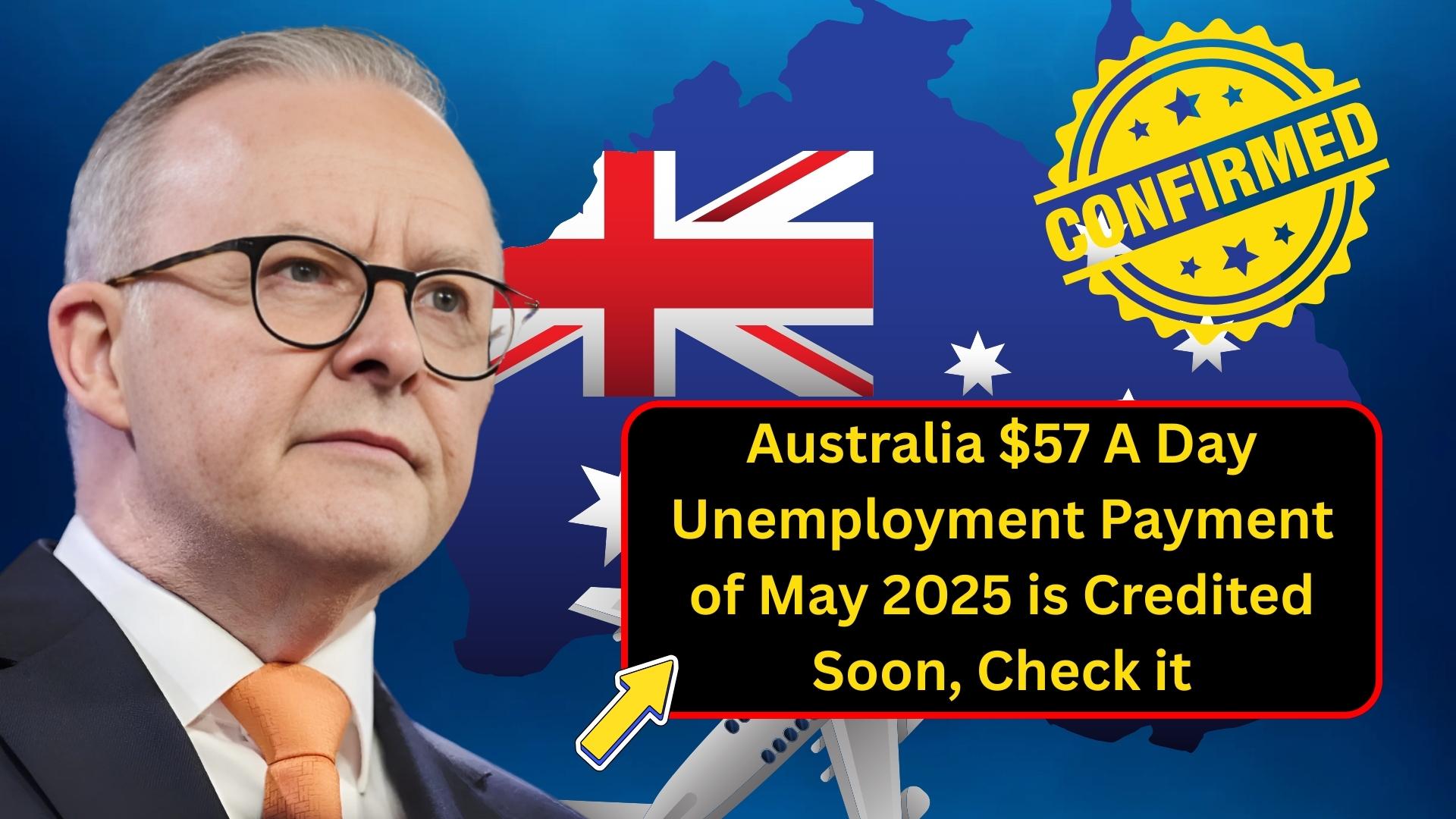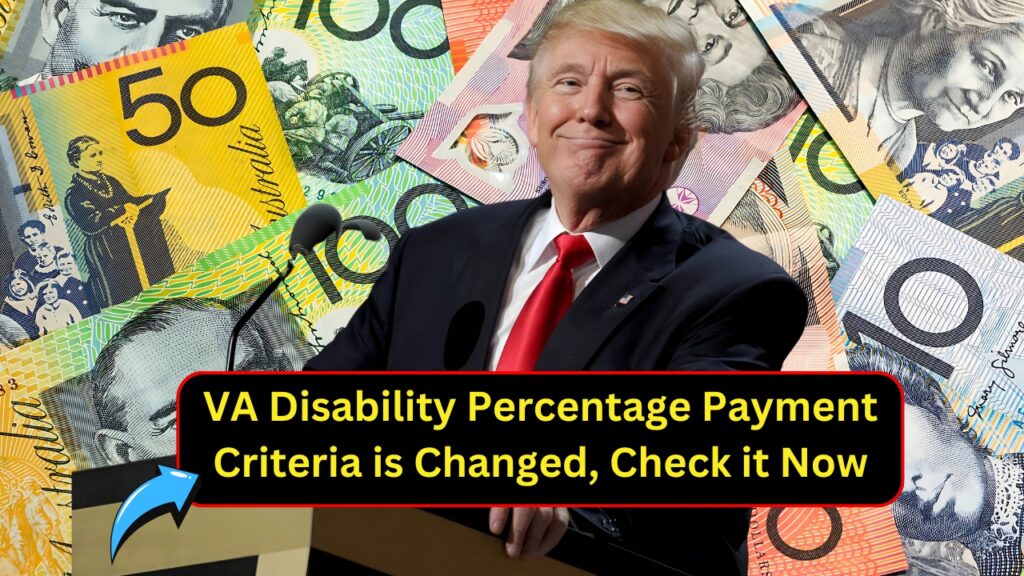In a period of economic instability and mounting costs of living, Australia’s JobSeeker Payment remains a vital safety net for people who are unemployed.
The headline number It’s a 3rd marriage Payment of nearly $57 per day May 2025 The rules for this life saving support system are changing and some of the people that need it may even see 4-digit sums of money.
In this extensive guide, we look into all you need to know about the May 2025 JobSeeker Payment, including eligibility criteria, how to apply, and the latest changes.
Table of Contents
May 2025 JobSeeker Payment Current Rates
The Australian Government raised the JobSeeker Payment in stages to help recipients cope with inflation and higher living costs.
Since May 2025 single people have to live on as little as $798.50 per fortnight, or $57 a day.
This is just a small jump from current rates, which according to Prime Minister Scott Morrison, is supposed to be more meaningful assistance for unemployed Australians.
Payment rates differ for those in different situations:
Single with children of the parent: $836.50 fortnightly
Singles 55 years and over (9 months after becoming payable): $836.50 fortnightly
Single, able to work part time: $836.50 a fortnight
Couple (each) non-partnered: $718.80 a fortnight
They are normally deposited every two weeks in the bank account of the recipient and may be taxed as income. How much each person gets exactly depends on their financial situation, such as income, assets and family structure.
Who Is Eligible?May 2025 beneficiaries?
Several key eligibility requirements are to be met to be eligible for the JobSeeker Payment in May 2025:
Age Requirements
You must be aged at least 22 years and Age Pension age (currently 67 for most Australians) to apply.
Young people under 22 may be eligible for Youth Allowance instead, which offers similar assistance designed for youth.
Residency Status
To be eligible for the JobSeeker Payment you must:
Be Australian citizens or have permanent residency
-Physically present in Australia when claiming
You must meet the residency requirements set down by Services Australia
Employment Status
Generally, here are a person’s eligibility:
Not in the labour force: unemployed and looking for work
Casual/part-time looking for more hours
Temporarily unable to work (for medical reasons) other than due to sickness or injury (with medical certification)
Income and Assets Tests
The amount is calculated to suit individual finances:
Single people can earn up to $150 a fortnight before their payment is docked
Entitlements fall 50c in the dollar once you earn between $150 and $256 a fortnight
For more than $256 each fortnight, the payment tapers by 60 cents a dollar
There are also asset limits, which have different thresholds for homeowners and non-homeowners
Applying for JobSeeker Payment from May 2025
How do I apply for JobSeeker payment? The JobSeeker application process has gone digital in recent years, and most claims are now processed online through Services Australia. Here’s a step-by-step guide:
Get the Necessary Documents in Order
Identity document (passport, driver’s licence, birth certificate)
Tax file number
Bank account details
Recent payslips or income statement
Description of assets and investments
Set up or sign into Your myGov Account
Sign in to your myGov account at my. gov.au
Make sure your account is connected to Centrelink services
If you aren’t already signed in, you will need to sign in with your Nim account or register.
Submit Your Claim
– Log in to your Centrelink online account and choose “Payments and Claims”
Click “JobSeeker Payment” from the options provided
Fill out honestly all the requested fields
Submit any supporting documents as requested
Go to Your First Appointment
Many new applicants will have to make an appointment with an employment service provider
This is typically done online or by phone
The assistant will assist in determining your job search needs
Begin Regular Reporting
— After approval, you will have to report your income and activities every two weeks.
– Reporting can be done online via the myGov website or the Express Plus Centrelink mobile app
Applicants can expect most applications to be processed within 1-3 weeks; however, some cases are more complex and may take longer. Benefits start once any waiting periods have been satisfied.
What’s New and What’s Changed for May 2025
JobSeeker recipients face a number of major changes in May 2025, including:
Payment Rate Increases
The rise to about $57 a fortnight is the government’s response to sustained lobbying by welfare organisations over unsustainable previous rates.
Though it is still far from the $25,000 annual salary many people regard as a livable income, the increase will provide some extra breathing room for the recipients.
Reciprocal Expectations Requirements To be eligible for income support, all Australian citizens and permanent residents are required to satisfy the RER when their fortnightly income is below a preset threshold.
Mutual Obligation is alive and well and job applications still needs to focused to more quality over quantity although there seems to be a shift in this process. Recipients typically need to:
Apply to a certain number of jobs every month
Submit the attendance reports to workservice providers at pre-arranged meetings
*Engage in activities such as training, voluntary work or work for the dole activities that you have agreed are related to your work and participation requirements
Other Forms of Support
In addition to the base JobSeeker Payment, recipients can now get a hold of:
Rent Assistance: Up to $151.60 a fortnight, maximum for private renters
Energy Supplement – Automatically included to assist with the costs of utilities
Health Care Card: Gives you cheaper medicine and some medical services
Multiple crisis payments for people in the most dire of straits
The Economic Context Behind May 2025 JobSeeker Payments
CSIRO Australian economy in May 2025 is still tough as shit with the unemployment rate at 4.1 per cent.
Though that level of unemployment is relatively steady with the historical average, it belies much that is wrong with underemployment and regional inequality.
It’s against this reality of increasing costs of living that the increase in the JobSeeker Payment to just $57 a day must be taken.
Economists have pointed out that although the boost is welcome the recipients face a significant financial burden, with many living in poverty conditions despite the top-up.
Recent studies have indicated that higher JobSeeker payments are not only economically beneficial in terms; of better long-term mental health and productivity, but also in terms of reduced use of health services.
This data has increased pressure for additional hikes to make the payment equivalent to other developed countries.
The Future of Unemployment Assistance
As Australia grapples with an ailing economy in 2025, the JobSeeker Payment continues to be the focal point of policy debate.
Advocacy groups are still pressing for a more substantial increase, saying the current rate still keeps recipients in poverty even with the recent adjustments.
The government said the payment rates would remain subject to bi-annual review, and the next opportunity for any further changes is 2025.
Such reviews take into account movements in the Consumer Price Index and other elements of the broader economy to ensure payments remain at their real value.
This makes it more important than ever for those who are receiving — or hoping to receive — benefits to keep abreast of these changes.
Regular updates will be provided via Services Australia, and myGov notifications will alert recipients of changes to their payments.
A Day Unemployment Payment
The JobSeeker Payment of May 2025 at around $57 a day is a significant shift in Australia’s social security armature.
While there is ongoing debate about whether this is enough, this payment is a crucial lifeline for tens of thousands of Australians who have lost work or seen their hours reduced.
By knowing who is eligible, how to apply and additional support programs that are offered, recipients can help take full advantage of what they can get through still-insufficient assistance programs as they work toward employment stability.
As the economic landscape continues to shift, the JobSeeker Payment is also likely to stay in the spotlight when it comes to discussion about Australia’s social safety net, and the ways the country helps its most marginalised people.











